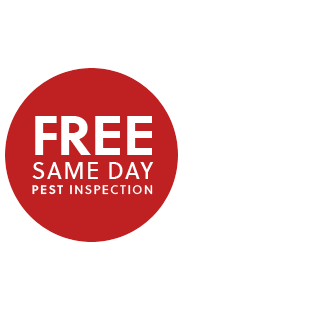Food safety and pests
September is National Food Safety Education Month. Many people associate unsafe food with poor preparation or storage practices. However, various pests – rodents, flies, cockroaches, and such stored product pests as beetles and Indianmeal moths – are responsible for spreading foodborne pathogens as Salmonella, Listeria, and E. coli.
Foodborne illnesses are spread by pests after they pick up germs while crawling across sewage, garbage, decaying matter, and other filth. Then they transfer these germs – along with their shed skins and fecal droppings – onto foods and food surfaces. Food can become contaminated whether it comes from a restaurant or your own kitchen.
Pests that contaminate food
Cockroaches: These insects can spread 33 types of bacteria. Airborne particles containing cockroach feces can also cause asthma attacks and allergic reactions. Cockroaches don’t spread diseases through biting people, but they contaminate food and countertops via simple contact. Their saliva and droppings carry disease pathogens, and then, while simply walking over a surface, they can contaminate the area.
Rodents: Rats, mice, and other rodents are highly diverse and devious. They also cover the greatest area of any pest that carries foodborne pathogens because of how many droppings they produce – a single rat can produce up to 25,000 droppings per year. Rodent droppings carry various parasites and pathogens that are the cause of multiple foodborne illnesses.
Flies: The common housefly, fruit flies, and other flies carry the most diseases of any pest – more than 100 varying pathogens. They also spread diseases very easily because of how free-ranging they are.
Flies can spread diseases because they feed freely on human food and filthy matter alike. The fly picks up disease-causing organisms while crawling and feeding. Those that stick to the outside surfaces of the fly may survive for only a few hours, but those that are ingested with the food may survive in the fly’s crop or gut for several days.
Food, along with the related waste in your home, is a prime feeding ground for flies, which can just as easily pick up a disease from one place and transfer it to food in a matter of seconds.
Pantry pests: Also called stored product pests, these beetles and moths can silently infest baking ingredients, quickly wreaking havoc and rendering them useless. In addition to baking items, pantry pests are also attracted to dried flowers and potpourri, which are commonly used in holiday decorations.
Prevention tips
Cleaning food preparation areas regularly and keeping pests from getting inside your home are essential to preventing foodborne illnesses. Clark, your friendly pest control, termite, and grounds expert, recommends that you follow these tips:
- Clean frequently to keep your home free of crumbs and other debris, and avoid letting dirty dishes pile up in the sink.
- Use disinfectant to wipe down counters and other surfaces after meal prep.
- Remove trash regularly and store it in a sealed receptacle outdoors.
- Transfer foods into sturdy, sealed containers, throwing away any foods with expiration dates that have passed.
- Check for leaking pipes and moisture sources that attract pests, including bacteria-transferring cockroaches.
- Seal up openings in your home’s foundation, repair tears in window and ventilation screens, and replace loose caulk to deny pests access.
Clark Pest Control is committed to safeguarding your home from pests during these challenging times. Our service technicians use such personal protective equipment as gloves, masks, and respirators, they practice social distancing, they call ahead to notify you before a service, and they adhere strictly to all Centers for Disease Control and Prevention guidelines when servicing inside or outside your home.
For more tips to keep your family’s food safe from pests, call (800) WE-NEED-YOU (936-3339) or email us at clarkcares@clarkpest.com for more information.
Until next time, the pest management professionals at Clark Pest Control thank you for your help in keeping unwanted pests out of your home and yard.


